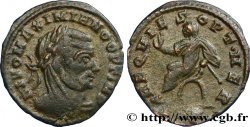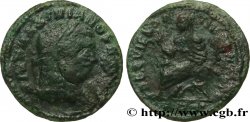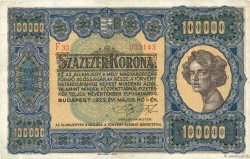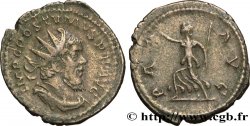Live auction - brm_479122 - MAXIMIANUS HERCULIUS Demi-follis ou demi-nummus
You must signin and be an approved bidder to bid, LOGIN TO BID. Accounts are subject to approval and the approval process takes place within 48 hours. Do not wait until the day a sale closes to register. Clicking on "BID" constitutes acceptance of the terms of use of cgb.fr private live auctions.
Bids must be placed in whole Euro amounts only. The sale will start closing at the time stated on the item description; any bids received at the site after the closing time will not be executed. Transmission times may vary and bids could be rejected if you wait until the last second. For further information check the Live auction FAQ
All winning bids are subject to a 18% buyer’s fee.
All winning bids are subject to a 18% buyer’s fee.
| Estimate : | 250 € |
| Price : | no bid |
| Maximum bid : | no bid |
| End of the sale : | 10 April 2018 15:20:37 |
Type : Demi-follis ou demi-nummus
Date: 318
Mint name / Town : Trèves
Metal : copper
Diameter : 18 mm
Orientation dies : 12 h.
Weight : 1,81 g.
Rarity : R2
Officine: 1re
Coments on the condition:
Exemplaire sur un flan large bien centré des deux côtés. Beau buste voilé de Maximien Hercule. Revers inhabituel pour l’atelier de Trèves. Jolie patine vert olive
Catalogue references :
Predigree :
Cet exemplaire provient de la collection L. P
Obverse
Obverse legend : DIVO MAXIMIANO OPT IMP.
Obverse description : Buste lauré, voilé et drapé de Maximien Hercule à droite, vu de trois quarts en avant (K*11).
Obverse translation : “Divo Maximiano Optimo Imperatori”, (Au divin Maximien le meilleur empereur).
Reverse
Reverse legend : REQVIES OPT. MER/ -|-// PTR.
Reverse description : L'empereur voilé assis à gauche sur une chaise curule, levant la main droite et tenant un sceptre court de la main gauche.
Reverse translation : “Requies Optimorum Meritorum”, (Le repos bien mérité des meilleurs).
Commentary
Rubans de type 3. Maximien à Trèves se voit doter du titre d’Optimus. La réhabilitation du beau-père de Constantin Ier est passée là, moins de dix ans après son exécution (ou suicide) de son gendre (le même Constantin).







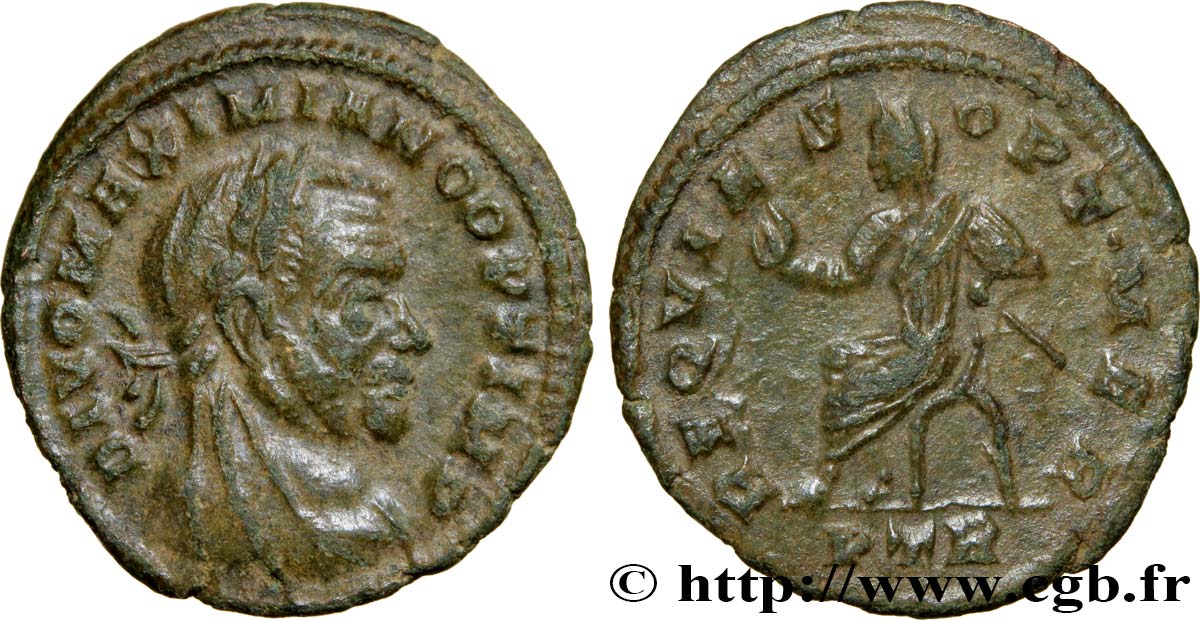
 Report a mistake
Report a mistake Print the page
Print the page Share my selection
Share my selection Ask a question
Ask a question Consign / sell
Consign / sell
 Full data
Full data